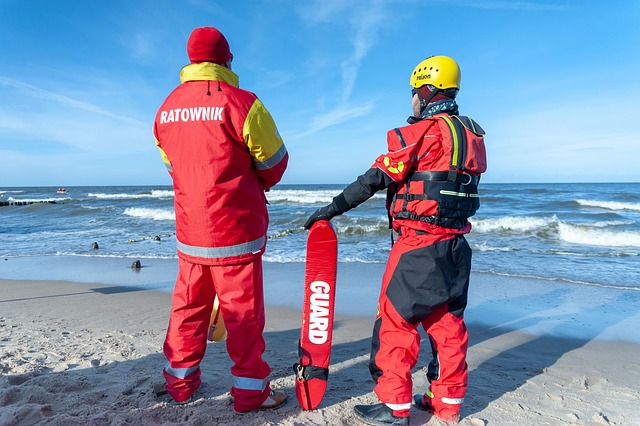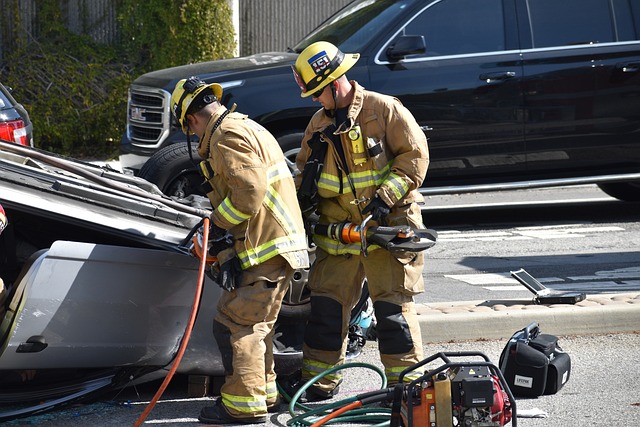A garbage truck veered off its route in a bustling city during an early morning collection, causing significant damage and injuries. The incident underscores the need for enhanced safety measures and operator training in urban environments. Emergency crews, including firefighters and paramedics, responded swiftly to provide immediate medical aid. Coordination among specialized teams ensures rapid care for all victims. Post-accident evaluation is crucial to understand the impact and guide appropriate actions, focusing on "garbage truck accident" considerations. Investigators are exploring product liability and maintenance issues as potential causes, while the local transport authority works to prevent similar accidents in the future.
“In a swift display of professionalism, emergency crews were on the scene in record time following a severe garbage truck accident. This sudden incident, involving a collision between a waste vehicle and another motor, sparked a rapid response from local authorities. The article delves into the details of ‘The Incident,’ exploring the circumstances that led to the crash. Subsequently, it highlights ‘Quick Response’ strategies, showcasing the coordinated efforts of firefighters, paramedics, and police. Lastly, we analyze the ‘Aftermath and Impact,’ emphasizing the immediate actions taken to mitigate damage and ensure public safety in such unforeseen events.”
- The Incident: Unraveling the Garbage Truck Accident
- Quick Response: How Emergency Crews Were Deployed
- Aftermath and Impact: Assessing the Immediate Consequences
The Incident: Unraveling the Garbage Truck Accident

In the heart of a bustling metropolis, chaos erupted when a garbage truck veered off its route during an early morning collection. The incident, described as a sudden and unexpected turn of events, left onlookers in a state of shock. Witnesses reported that the vehicle lost control while navigating a sharp curve, careening onto the sidewalk and colliding with multiple street signs before coming to a stop. The impact was significant, causing severe damage to both the truck and nearby structures.
The driver, who sustained minor injuries, was immediately attended to by emergency crews on scene. However, the real concern lay with several pedestrians caught in the crossfire. Several individuals were rushed to area hospitals, where they are currently being treated for a range of injuries, some of which are reported to be serious. The situation highlights the urgent need for improved safety measures and better training for garbage truck operators, especially in navigating challenging urban terrain. Meanwhile, investigators from the local transport authority are delving into the cause of the accident, with product liability and potential maintenance issues high on their list of concerns.
Quick Response: How Emergency Crews Were Deployed

When a garbage truck accident occurs, every second counts, and emergency crews are trained to respond swiftly. In such critical situations, multiple teams are deployed simultaneously to ensure a rapid and effective reaction. The first to arrive are often fire fighters, equipped with specialized tools for extrication, ready to assess the scene and secure the area. Paramedics follow closely behind, providing immediate medical attention to any injured parties, using advanced life-saving techniques.
This coordinated effort is further enhanced by the presence of police officers who manage traffic flow and direct other emergency vehicles to the location. The quick deployment of these specialized crews is a testament to the city’s preparedness for such events, ensuring that victims receive crucial care promptly, whether it’s a minor injury or a more complex medical situation mirroring aspects of elder law, auto accident attorney services, or even medical malpractice concerns.
Aftermath and Impact: Assessing the Immediate Consequences

The aftermath of a garbage truck accident can be chaotic, with immediate concerns centered on ensuring everyone’s safety and providing prompt medical attention. Emergency crews swiftly respond to such incidents, clearing roads, extricating trapped individuals, and managing initial injuries. The impact of these accidents extends beyond physical harm; it disrupts daily routines, particularly in communities reliant on efficient waste management services.
In the immediate aftermath, authorities assess the damage, investigate the cause, and consider potential liability, including product liability (in cases where equipment failure plays a role), medical malpractice if injuries are due to improper treatment, or insurance disputes over coverage and responsibility. This thorough evaluation is crucial for understanding the full extent of the incident’s consequences and determining appropriate next steps for affected parties.
In conclusion, the recent garbage truck accident underscored the critical role of swift emergency response. The quick deployment of crews demonstrated the city’s preparedness and the effectiveness of their coordination, significantly mitigating potential risks. This incident serves as a stark reminder of the importance of immediate action in such scenarios, ensuring public safety and efficient management of unforeseen events involving large vehicles like garbage trucks.






